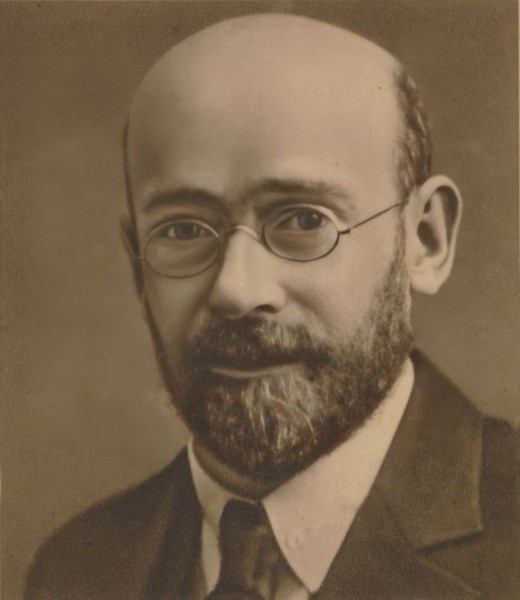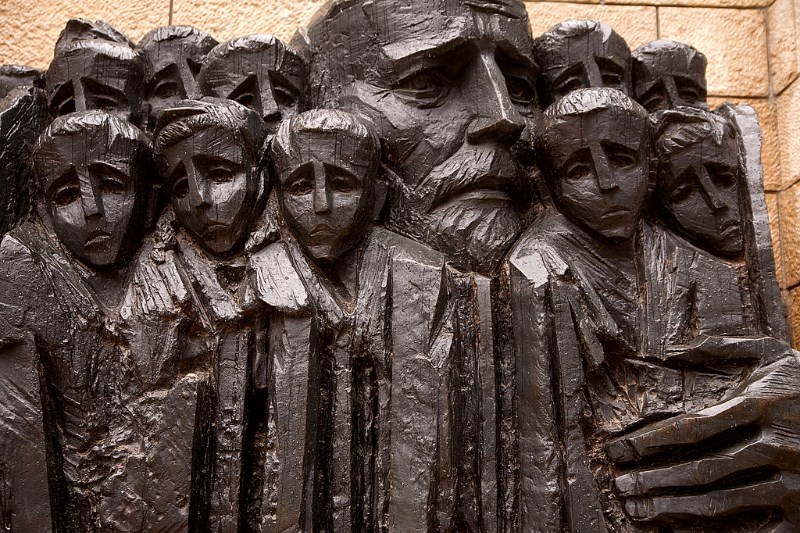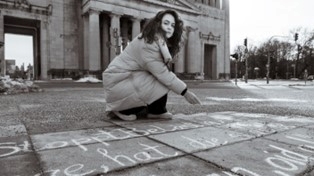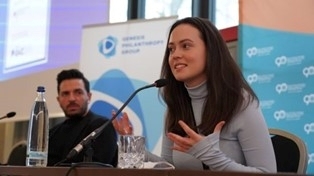When I was just 13 years old, I heard about my current hero Janusz Korczak for the first time. As part of a project at the European Janusz Korczak Academy, a Jewish educational institution in Munich, Bavaria, I learned about the remarkable story, values and principles of the Jewish-Polish doctor, author, educator and founder and protector of children's rights, which still deeply impress me today.
Born Henryk Goldszmit in Warsaw, Poland, in 1878, Janusz Korczak's entire life and work was characterized by strong humanistic values, which were expressed in his profound commitment to the rights and welfare of children, earning him international recognition. After completing his medical studies, Korczak initially specialized in pediatrics before turning his attention to pedagogy. The founding of the so-called "Dom Sierot" (House of Orphans) in Warsaw in 1912 was an important milestone in his career. In the orphanage he ran, Korczak implemented his progressive educational values and principles, which emphasized that children are independent individuals with rights and needs that must be heard, respected and protected. Korczak strongly encouraged and demanded children's participation in decision-making processes, their ability for self-determination and respect for their dignity. It was during this time that he wrote what is probably his most famous quote, which reads as follows:
"Children are not the people of tomorrow, but the people of today."
 Janusz KorczakWiki Commons
Janusz KorczakWiki Commons
As simple as this quote may sound to some people today, it also illustrates how much Janusz Korczak was ahead of his time with his democratic and highly humanistic approaches. The values of respect, dialog, participation, humanity and dignity in relation to education and the rights of children can be traced back to Janusz Korczak's innovative and courageous ideas, which in my opinion should be enough to call him a true hero.
However, there is another tragic chapter in Janusz Korczak's impressive life story that should not go unmentioned here – and this chapter is about his death. In 1942, during the Shoah, Dom Sierot was dissolved by the Nazis and the children and staff were taken away for deportation to the Treblinka extermination camp. Although Korczak would have had the opportunity to save himself due to his international reputation and prominence, he decided to stay with the children. According to witness reports, Korczak tried to maintain a sense of normality until the end by talking to the children and comforting them. His decision to join the children on the road to certain death, and the way he treated the children even in times of greatest need and fear, is an act of unprecedented selflessness and responsibility. Janusz Korczak's death in Treblinka in August 1942 became a symbol of moral resistance, integrity and humanity, even in the cruelest circumstances of the Shoah.
Today, various organizations, such as the aforementioned European Janusz Korczak Academy (EJKA), as well as numerous books by and about Janusz Korczak, commemorate his educational legacy and his heroic decision not to let the children of Dom Sierot go to their deaths alone. Yad Vashem, the Holocaust Memorial Center in Jerusalem, has also paid tribute to Korczak's unwavering dedication to children's rights during the dark years of the Shoah in the form of an impressive memorial, inaugurated in 1983.
 Memorial, inaugurated in 1983.Flikr
Memorial, inaugurated in 1983.Flikr
I hope I have made it clear that Janusz Korczak was an outstanding personality and why he is and will remain a hero across nations and generations, and I would like to go into more detail about what makes him my hero. Shortly after I first learned about Janusz Korczak, I also learned about the Jewish principle of "Tikkun Olam", which literally means "repairing the world". In a figurative sense, the principle means that every person has the opportunity and the task of making the world a little bit better than it is today. This important principle has stayed with me ever since I got to know it and so I always try to incorporate it into my everyday life, my relationships, my voluntary work and my work at the EJKA. Although I don't know whether Korczak ever heard of "Tikkun Olam", his life story clearly shows that he also lived and acted according to this principle - more than almost anyone else. This is exactly what makes Janusz Korczak so approachable for me and an incredible role model and unique hero at the same time
 SofijaSofija Pavlenko
SofijaSofija Pavlenko SofijaSofija Pavlenko
SofijaSofija Pavlenko
My wish is that more people would learn about Janusz Korczak's values and learn from his story, especially in today's world, which is characterized by various crises, conflicts and challenges such as polarization, radicalization and discrimination. Finally, I would like Janusz Korczak himself to speak again with the following valuable message:
"Have courage for yourself and find your own way."
Page created on 1/5/2024 12:36:22 PM
Last edited 2/3/2025 3:17:09 PM
